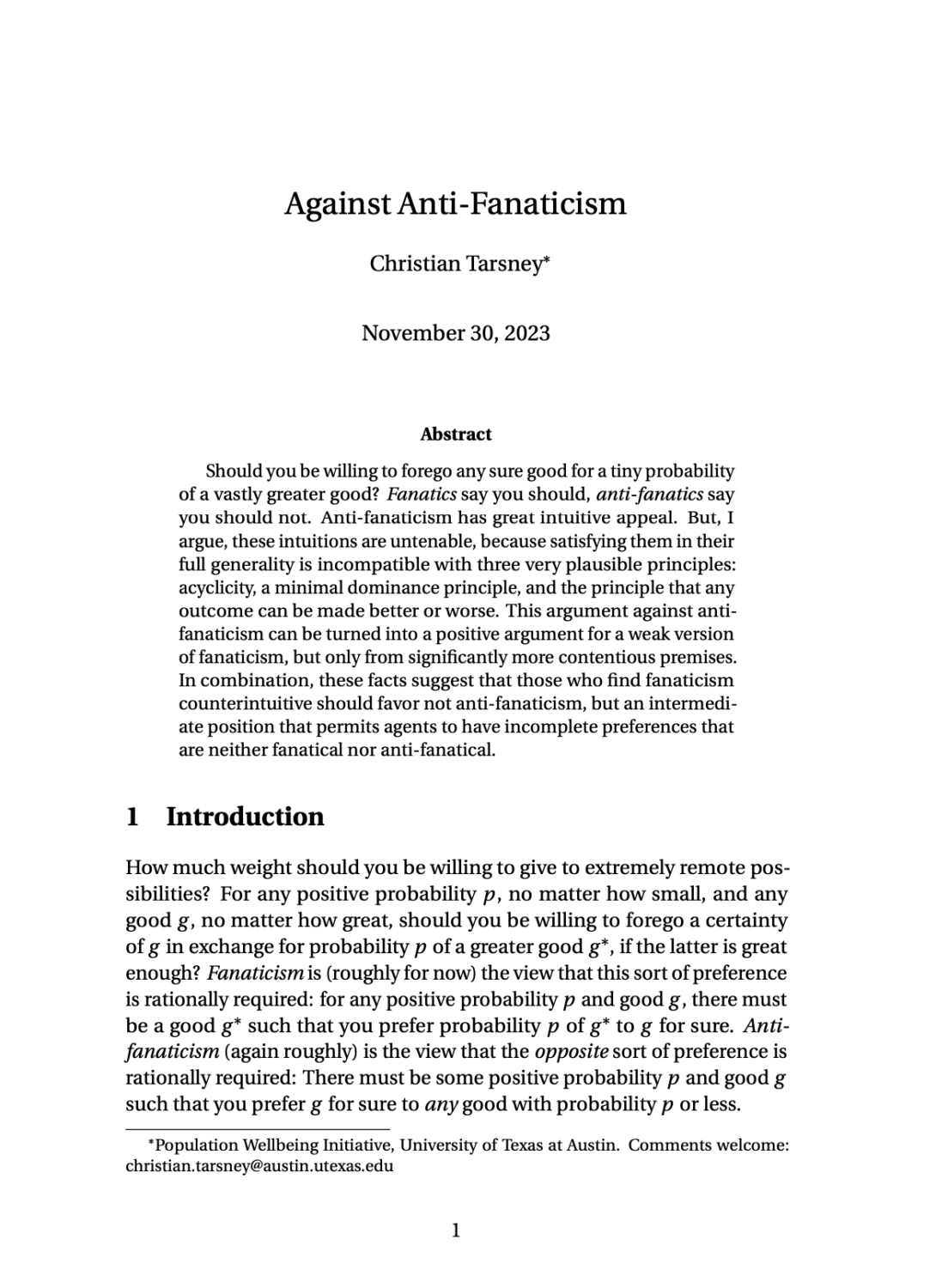Against Anti-Fanaticism
Christian Tarsney (Population Wellbeing Initiative, University of Texas at Austin)
GPI Working Paper No. 15-2023, published in Philosophy and Phenomenological Research
Should you be willing to forego any sure good for a tiny probability of a vastly greater good? Fanatics say you should, anti-fanatics say you should not. Anti-fanaticism has great intuitive appeal. But, I argue, these intuitions are untenable, because satisfying them in their full generality is incompatible with three very plausible principles: acyclicity, a minimal dominance principle, and the principle that any outcome can be made better or worse. This argument against anti-fanaticism can be turned into a positive argument for a weak version of fanaticism, but only from significantly more contentious premises. In combination, these facts suggest that those who find fanaticism counterintuitive should favor not anti-fanaticism, but an intermediate position that permits agents to have incomplete preferences that are neither fanatical nor anti-fanatical.
Other working papers
The end of economic growth? Unintended consequences of a declining population – Charles I. Jones (Stanford University)
In many models, economic growth is driven by people discovering new ideas. These models typically assume either a constant or growing population. However, in high income countries today, fertility is already below its replacement rate: women are having fewer than two children on average. It is a distinct possibility — highlighted in the recent book, Empty Planet — that global population will decline rather than stabilize in the long run. …
Tiny probabilities and the value of the far future – Petra Kosonen (Population Wellbeing Initiative, University of Texas at Austin)
Morally speaking, what matters the most is the far future – at least according to Longtermism. The reason why the far future is of utmost importance is that our acts’ expected influence on the value of the world is mainly determined by their consequences in the far future. The case for Longtermism is straightforward: Given the enormous number of people who might exist in the far future, even a tiny probability of affecting how the far future goes outweighs the importance of our acts’ consequences…
Tough enough? Robust satisficing as a decision norm for long-term policy analysis – Andreas Mogensen and David Thorstad (Global Priorities Institute, Oxford University)
This paper aims to open a dialogue between philosophers working in decision theory and operations researchers and engineers whose research addresses the topic of decision making under deep uncertainty. Specifically, we assess the recommendation to follow a norm of robust satisficing when making decisions under deep uncertainty in the context of decision analyses that rely on the tools of Robust Decision Making developed by Robert Lempert and colleagues at RAND …

